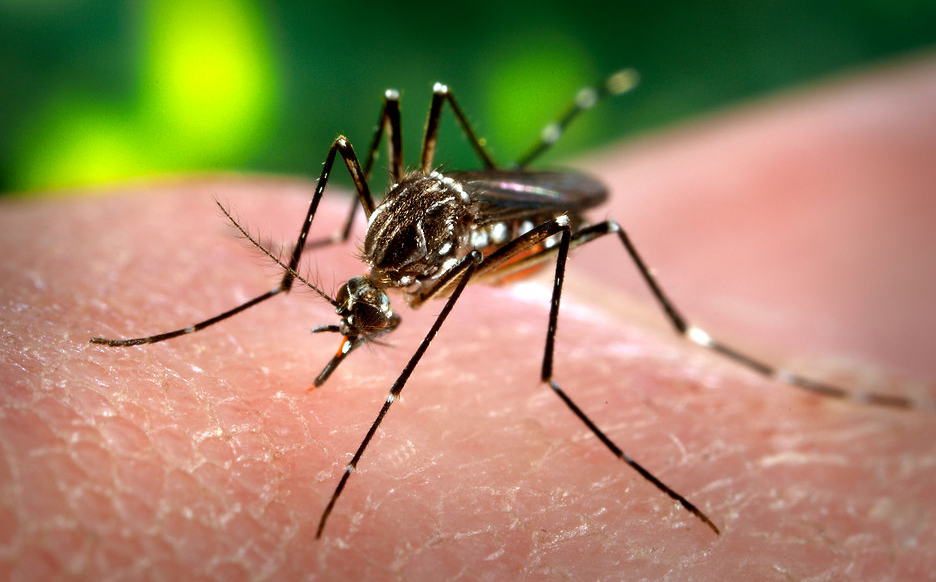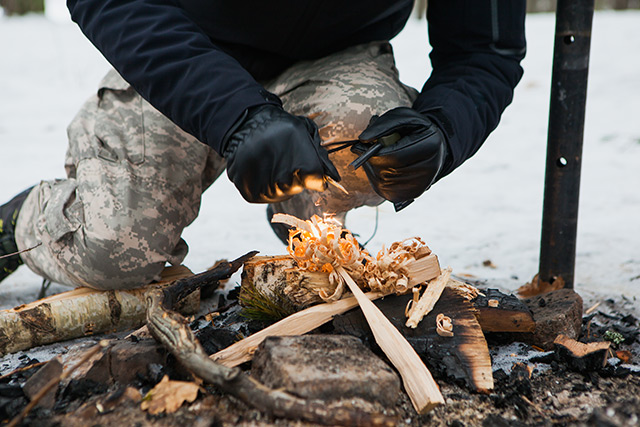How to make cheap, but very effective, DIY mosquito traps
08/18/2018 / By Zoey Sky

Summer usually means going camping or hiking, but pesky mosquitoes can take the fun out of these activities. (h/t to TheSurvivalistBlog.net)
Aside from feeding on your blood and causing itchy bites, mosquitoes also spread diseases like encephalitis, malaria, and West Nile fever. Only female mosquitoes require blood and they are attracted to body heat, carbon dioxide, dark clothing, and sweat.
However, instead of buying mosquito traps or repellents with harmful chemicals, you can keep these pests out of your garden or homestead with these DIY mosquito traps. (Related: Natural solutions to halt mosquitoes.)
You can get the best results with these traps by keeping them in two specific spots on your property: near low-lying wet areas (like near the woods) and where you’re busy with outdoor tasks or activities (like your garden or yard).
DIY mosquito trap 1 – Plastic bottle trap
This plastic bottle trap is effective, but it has to be refilled regularly. Since the neck of a plastic bottle is a carbon dioxide pathway, mosquitoes will be lured in but they’ll be trapped inside.
There’s also a separate set of instructions for the bait, which requires sugar and yeas.
Materials:
- Yeast (dry) – 1 package, about 3 teaspoons (tsp)
- Brown sugar – ¼ cups
- Hot water – 1 cup
- Plastic bottle – Use either a two-liter plastic bottle or several plastic water bottles placed around the area
- A pair of scissors or a knife
- Duct tape
- Black paint or construction paper
Directions:
- Remove the cap from the bottle and discard. Cut the top part of the bottle, which includes the neck and funnel area, off. Cut just below the flare of the bottleneck.
- Turn the bottleneck and funnel piece upside down. The opening where the cap was should be pointing to the bottom of the bottle.
- Push the inverted bottleneck down carefully and leave about a couple of inches at the bottom for the sugar and yeast mixture.
- Use the duct tape to attach the two bottle pieces together. The funnel section must be secured so there aren’t any gaps between the two bottles and the mosquitoes can’t escape.
- Paint the lower section of the bottle or tape black construction paper around it. This will attract the mosquitoes.
- Pour in the bait (follow the instructions below).
Plastic bottle trap bait instructions:
- Boil the water then add the sugar. Slowly reduce the heat to a simmer and stir until the sugar completely dissolves.
- Let the mixture cool to at least 120 to 130 degrees. Don’t add the yeast if the mixture is too hot because this can “kill” the yeast. If the mixture is too cold, the yeast won’t activate properly. Add the yeast and stir.
- Pour the bait into the plastic bottle trap, and leave the trap where there are a lot of mosquitoes.
DIY mosquito trap 2 – One-way mosquito ovitrap
An ovitrap is designed to mimic the ideal breeding ground of mosquitoes. Ovitraps catch mosquitoes that have already bitten people and are carrying eggs that they’re about to deposit.
The trap includes a net placed into a bottle. The mosquito enters from one side, and it climbs over the ramp then enters the bottle. Once it’s inside the bottle, it can’t escape.
Materials:
- Plastic bottle
- A pair of scissors
- Metal wire
- Aluminum screen (or similar material)
- An empty toilet roll (or similar tube) to roll the screen around
- Duct tape
Directions:
- Roll the screen around the toilet roll. The screen must be rolled at least two layers thick.
- Use duct tape to keep the screen together, then remove the screen from the roll.
- Cut open the back end of the trap into multiple pieces, then leave it splayed open. This will keep the trap stuck in the bottle.
- Push up the inner layer of the front part of your screen to create a ramp.
- Take the empty bottle and trace the screen roll. Cut out a hole so you can insert the screen in the hole you made in the bottle. Leave some water in the bottle for the mosquitoes to lay eggs in, then empty the bottle occasionally.
You may need to test the traps first to see which works best for you. Monitor them regularly to keep these pesky bloodsuckers at bay while you’re gardening or resting in your front porch.
You can read more articles about natural ways to get rid of mosquitoes at Preparedness.news.
Sources include:
Tagged Under: bugs, DIY, DIY mosquito traps, home remedies, homesteading, how-to, insects, mosquito repellent, mosquitoes, natural remedies, natural tips, outdoors, preparedness, prepping, remedies, summer mosquito traps



















